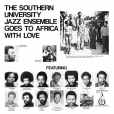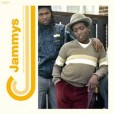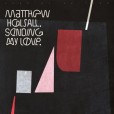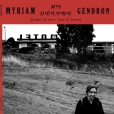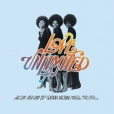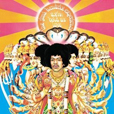Your basket is empty

‘Beautiful, haunting… spiritual reflection is sung with carnal force, songs of romance are rendered like hymns. For a few moments, on these ancient records, Baghdad sounds like paradise’ (Rolling Stone).
Twenty-one songs, running right back to 1971: assured, lovely, intelligent, good-humoured singer-songwriting, mixing up Americana, folk, pop, art rock, and gentle experimentalism.
Gonzalo Benitez and Luis Alberto Valencia were kingpins of the musica nacional movement in Ecuador. Check them out on the cover, on a rooftop in Quito’s Old Town, surveying their dominion.
In 1970, when Valencia collapsed onstage during a performance of the yaravi Desesperacion — ‘My heart is already in ashes’ — and died four days later, aged 52, his coffin was carried through those city streets on the shoulders of a throng of his fans.
They began singing as a duo in their mid-teens. During twenty-eight years together they recorded more than six hundred songs, for Discos Ecuador, Nacional, Granja, Ortiz, Rondador, Onix, Fuente, Real, Tropical, Fadisa, RCA Victor — and of course CAIFE.
Their exquisitely romantic harmonising is a sublime blend of collected forbearance and abject self-annihilation, underpinned and elaborated by the heart-piercing, improvisatory guitar-playing of Bolivar Ortiz. Effectively the third member of the group. ‘El Pollo’ sets the tone and intensity for everything that follows: listen to his soloing at the start of our opener, Lamparilla.
Musically a pasillo — a cross between a Viennese waltz and the indigenous yaravi rhythm — Lamparilla draws its verses from a poem by Luz Martinez from Riobamba, written in 1918 when she was 15, under the influence of Baudelaire and Mallarme. Another pasillo here, Sombras (‘Shadows’) is one of the best-loved songs in the musica nacional canon, setting poetry about undercover sex and lost love by the Mexican poet Maria Pren, which was considered pornographic on publication in 1911. ‘When oblivion comes / I will lose you to the shadows / To the hazy gloom / Where one warm afternoon I laid bare my unbridled feelings for you / Never again will I search out your eyes / Or kiss your mouth.’
And Benitez & Valencia looked back still further, to the indigenous roots of Ecuadorian music, as the key to its future. Carnaval de Guaranda is their take on a song dating back to the era of the Mitimaes, a broad group of Bolivian tribes conquered by the Incas and displaced to Ecuador. ‘Impossible love of mine / I love you for being impossible / Who loves what is impossible / Is the truest lover.’
Fiercely beautiful, desolate music from the shadowy mists of time, the lip of oblivion, for anyone who had a heart, for anyone who ever dreamed.
Superb singing, in Urdu, with reined-in accompaniment by Vijay Iyer on pianos and electronics, Shahzad Ismaily on bass and Moog.
‘A deeply expressive, stylistically expansive performance. The set opens with a meditative improvisation on pipe organ, followed by the sweeping three- part suite Love is Here, the driving pulse of Pharoah’s ‘Blues, and a transcendent reading of I Want to Talk About You. Coltrane’s influence is honoured through high-octane renditions of Moment’s Notice and Lazy Bird, before reaching an ecstatic, participatory climax with Love Is Everywhere, shared joyfully with the audience.’
Twenty-page booklet.
The single LP via Rhino is in lovely mono.
The double LP is newly transferred from the master tapes, remastered, and cut at 45rpm, in an all-analogue process.
Presented in a gorgeous gatefold sleeve by Analogue Productions, as part of its Atlantic 75 audiophile series.

